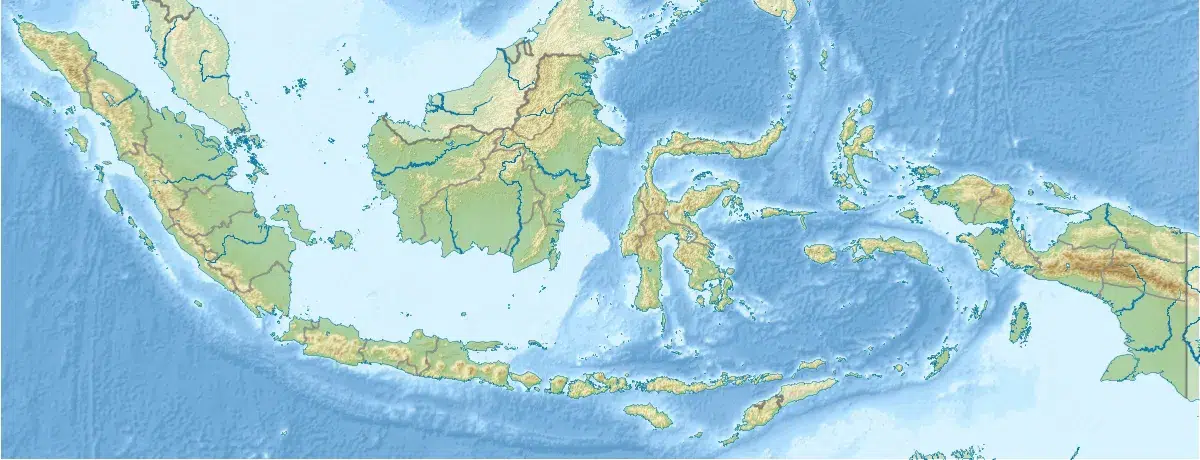Mekari Insight
- The Indonesian government is making strides to attract foreign investment, offering tax breaks, special economic zones, and streamlined licensing processes to make business entry easier and more rewarding.
- Indonesia’s cultural and regional diversity provides businesses with opportunities to cater to specialized needs. This diversity allows brands to create tailored products and services that appeal to specific market segments.
- As companies diversify their operations beyond China, Indonesia is becoming a cost-effective alternative. With competitive labor costs and a growing infrastructure, businesses can reduce operational costs while expanding in Southeast Asia.
Looking to expand your business? Indonesia, with a population of over 270 million and a rapidly growing economy, is a vibrant market that attracts entrepreneurs and investors alike.
With a GDP surpassing US$1 trillion and annual growth rates of 5.3% in 2022, Indonesia offers exciting opportunities. Also, projections for 2026 estimate a 4.9% growth rate.
In this article, we’ll highlight 8 key reasons why Indonesia is the ideal market for growth, along with a practical strategy to help business expansion to Indonesia succeed. Ready to explore? Let’s dive in!
Why you should expand your business to Indonesia
Business expansion to Indonesia offers numerous advantages, from a vast and growing consumer market to a young, competitive workforce and strategic location.
Let’s explore the key reasons why Indonesia should be on your radar for business expansion.
1. Large and growing market
Indonesia’s market size is one of its most attractive features, offering businesses access to a massive consumer base. However, it’s not just the number of people that makes this market valuable—it’s how that population is evolving.
- Population scale: With over 270 million people, Indonesia is one of the largest consumer markets in the world. The sheer size gives businesses a wide audience to cater to.
- Middle class growth: A rising middle class means more disposable income and changing spending habits, with consumers demanding higher-quality products and services.
- Diverse market: The market is incredibly diverse, with a range of cultural, regional, and economic groups, giving businesses the opportunity to create niche markets and specialized products.
2. Young and competitive workforce
Indonesia boasts a workforce that is not only large but also incredibly youthful and eager to adapt. This demographic is an asset for businesses looking for a skilled and innovative labor force.
- Tech-savvy youth: Over 50% of the population is under 30, a demographic that’s quick to adapt to new technologies, making it a perfect fit for industries like tech startups and digital innovation.
- Diverse skills: The country’s growing emphasis on education and vocational training provides businesses access to a skilled labor pool across various sectors, from retail to manufacturing.
- Adaptability: Young workers are often more flexible and adaptable, which means they’re open to learning new skills and technologies, helping companies stay competitive.
3. Strategic location

Indonesia’s location places it at the heart of key global trade routes, giving businesses access to broader regional markets and enhancing trade potential.
- Proximity to key markets: Positioned between the Pacific and Indian Oceans, Indonesia is strategically placed to serve as a hub for Southeast Asia and beyond.
- Global trade gateway: The country’s location along busy shipping lanes connects it to major global economies, making it an ideal base for export and import activities.
- Regional integration: Being part of ASEAN and other trade partnerships allows businesses in Indonesia to benefit from regional agreements, reducing barriers to trade and expansion.
4. Abundant natural resources
Indonesia’s rich natural resources are a major draw for businesses in sectors like energy, mining, and agriculture.
- Raw materials availability: From oil and gas to palm oil and timber, Indonesia is a critical player in global supply chains for raw materials.
- Emerging industries: With the rise of sustainability concerns, Indonesia’s wealth in renewable resources such as geothermal energy is creating new opportunities for green industries.
- Cost-effective sourcing: The abundance of resources often translates to lower raw material costs for industries reliant on imports, boosting the profitability of companies.
5. Economic growth potential
Indonesia’s economy is on a clear growth trajectory, offering long-term opportunities for businesses looking to expand into emerging markets.
- Strong GDP growth: The country has experienced consistent GDP growth, and projections show that it will continue to thrive in the coming years, making it an attractive market for investment.
- Government focus on infrastructure: With infrastructure development initiatives, such as improved transport and digital infrastructure, the economy is becoming increasingly conducive to business operations.
- Consumer spending: As the middle class grows, consumer spending is expected to rise, creating a healthy environment for businesses to grow alongside the economy.
6. Investment incentives
Indonesia has made a concerted effort to make the business climate attractive through various incentives aimed at foreign investors.
- Tax breaks: Companies can benefit from tax holidays and allowances, particularly in industries such as manufacturing and technology.
- Special Economic Zones (SEZs): These zones offer favorable business regulations, allowing companies to operate with reduced red tape and enhanced support.
- Streamlined processes: The implementation of the Online Single Submission (OSS) system simplifies business registration and licensing, making entry into the market faster and more efficient.
Read more: Foreign Company Registration in Indonesia: A Simple Guide7. China + 1 strategy
As global companies look to diversify their operations beyond China, Indonesia presents itself as a strong alternative. This strategy helps businesses mitigate risks associated with geopolitical tensions and supply chain disruptions.
- Competitive labor costs: Labor in Indonesia is often more affordable than in China, allowing businesses to reduce operational costs while maintaining productivity.
- Growing infrastructure: Indonesia’s investment in infrastructure is making the country a viable option for manufacturing and distribution, especially as companies shift from China.
- Regional diversification: Expanding into Indonesia as part of a “China + 1” strategy gives companies access to Southeast Asia’s emerging markets while diversifying their supply chains.
8. Government support and investment incentives
The Indonesian government actively encourages foreign businesses, offering numerous incentives and support to make market entry and operations easier.
- Tax and investment benefits: The government offers attractive tax incentives, including allowances and holidays, aimed at boosting foreign investments in key sectors.
- Business-friendly regulations: With the introduction of Special Economic Zones and a simpler licensing process through the OSS system, Indonesia is becoming an increasingly business-friendly destination.
- Encouragement for innovation: The government is particularly focused on attracting investment in sectors like technology, green energy, and digital services, offering further incentives for companies in these industries.
Read more: 10 Things you Should Know Before Doing Business in IndonesiaStrategy to expand business in Indonesia
A successful entry into the market also involves adapting to local business culture and continuously optimizing your operations.
In the following sections, we’ll break down these strategies and help you navigate the process of business expansion to Indonesia.
1. Market research and feasibility study
Before jumping into a new market, it’s crucial to understand what drives consumer behavior in Indonesia. By doing a comprehensive analysis, businesses can make smarter decisions on where to focus their efforts.
- Analyze consumer behavior: Understanding how Indonesian consumers think, what they value, and their spending habits is essential. Local culture plays a big role in shaping their preferences, so it’s important to consider these influences when designing products and services.
- Identify market demand: Identify the current trends, assess competition, and figure out if there’s a gap in the market that your business can fill. Knowing what’s in demand helps to align your offerings with market needs.
- Evaluate regulatory requirements: Indonesia has specific investment laws and regulations. Before diving in, familiarize yourself with foreign ownership rules, industry-specific regulations, and other legal requirements to ensure your business stays compliant.
- Assess location strategy: Whether you choose to set up in Jakarta, a major city, or industrial zones depends on your business type and goals. Each location offers different opportunities, so make sure to consider factors like infrastructure and access to your target market.
2. Choose the right entry strategy
Choosing the best way to enter the Indonesian market can vary depending on your business goals and resources. Here are some options to consider:
- Direct investment (FDI): This strategy involves setting up a new business entity, like a PT PMA (Foreign-Owned Company), giving you full control over operations and profits.
- Joint venture with local partners: Partnering with Indonesian companies can help you navigate local regulations, understand market nuances, and gain easier access to Indonesian customers.
- Franchising & licensing: If you don’t want to invest heavily in setting up a business, franchising or licensing local businesses is a great way to expand without bearing all the initial costs.
- E-commerce and digital expansion: Platforms like Tokopedia, Shopee, TikTok are popular in Indonesia. Using them as a testing ground for your products can be a cost-effective way to understand market demand before making a larger commitment.
3. Legal and regulatory compliance
Getting the legal side right is crucial when expanding to a new market, and Indonesia has specific requirements that businesses must follow.
- Register a legal entity: You’ll need to set up a legal entity, either through a PT PMA (Foreign-Owned Company) or other types of entities.
- Understand Indonesia’s tax regulations: Familiarize yourself with Indonesia’s tax system, including VAT, corporate taxes, and import duties, so there are no surprises when it comes to taxes.
- Secure necessary permits: Using the Online Single Submission (OSS) system, you can easily apply for the necessary permits and licenses to operate in Indonesia.
- Adhere to Indonesia’s labor laws: Make sure you understand and comply with local labor laws, including minimum wage requirements and local hiring preferences to avoid any legal issues.
4. Build strong local partnerships
Establishing strong partnerships with local distributors, suppliers, and organizations is key to successful business expansion to Indonesia.
- Find reliable distributors and suppliers: Local partners can help you strengthen your supply chain and improve your ability to deliver products efficiently.
- Collaborate with government and trade associations: Organizations like BKPM (Investment Coordinating Board) can help you navigate regulations, gain market insights, and create connections with the right people.
- Leverage local networks: Partnering with Indonesian entrepreneurs can offer valuable market insights and build credibility for your business within the local community.
5. Develop a strong go-to-market strategy
A solid marketing strategy that resonates with the Indonesian audience will be essential for capturing the market’s attention.
- Localize marketing approach: Tailor your branding and marketing campaigns to fit Indonesian culture. Understanding local preferences and communication styles can help make your business more relatable and attractive.
- Leverage digital marketing & social media: Indonesians are active on social platforms like Instagram, TikTok, and WhatsApp. These platforms are great tools for customer engagement and brand awareness.
- Use online & offline distribution channels: Combining e-commerce with physical retail stores gives you a hybrid approach to reach customers both online and in person, expanding your reach.
6. Optimize operations and logistics
Having efficient operations is key to keeping costs low and satisfying customers. In Indonesia, smart logistics can make all the difference.
- Select the right logistics partner: Work with established local logistics providers like JNE, J&T, or third-party logistics (3PL) companies to ensure timely delivery and minimize shipping costs.
- Set up local warehousing: Having warehouses closer to your target market can reduce shipping times and lower costs, giving you a competitive advantage.
- Ensure supply chain resilience: Diversify your sourcing strategies to avoid disruptions and ensure a steady flow of goods, especially if you plan to scale your operations.
Read more: Boost Efficiency with Custom Logistic Software Solutions7. Adapt to Indonesia’s business culture

Success in Indonesia often depends on the relationships you build, so adapting to local business culture is essential.
- Build relationships and trust: In Indonesia, personal connections are key. Establishing trust and nurturing strong relationships with local partners, employees, and customers will help your business thrive.
- Understand local etiquette: Being patient, flexible, and respectful of local business practices, including negotiation styles, will go a long way in Indonesia’s relationship-based business environment.
- Comply with ethical business practices: Transparency and integrity are highly valued in Indonesia. By maintaining ethical practices, you can build a positive reputation and long-lasting partnerships.
Read more: 9 Key Insights to Understand Business Culture in Indonesia8. Continuously monitor & scale your business
As your business grows, it’s important to keep track of performance and adapt your strategy based on real-world feedback.
- Track key performance metrics: Monitor your sales, customer engagement, and operational efficiency regularly to understand what’s working and what’s not.
- Iterate & optimize strategy: Keep refining your approach based on market feedback, so you can continue improving and staying competitive in the market.
- Expand beyond the initial market: Once you’ve established yourself in one city, consider expanding into other regions in Indonesia or even other ASEAN markets to grow your business further.
Optimize business expansion to Indonesia within local SaaS
In conclusion, business expansion to Indonesia is all about making smart decisions that align with local needs and market dynamics. To make this process smoother and more efficient, having the right tools is key. That’s where Mekari comes in.
As an integrated SaaS solution designed for Indonesia, Mekari can help businesses streamline their operations, manage resources more effectively, and unlock opportunities for growth.
With Mekari, you get the support you need to scale successfully, ensuring that your business runs smoothly while you focus on driving long-term success in the Indonesian market.
References
Acclime. ‘’Six reasons for setting up a business in Indonesia’’
ASEAN Briefing. ‘’Why Invest in Indonesia’’
Cekindo. ‘’Top Reasons Why Expand Your Business to Indonesia in 2025’’

